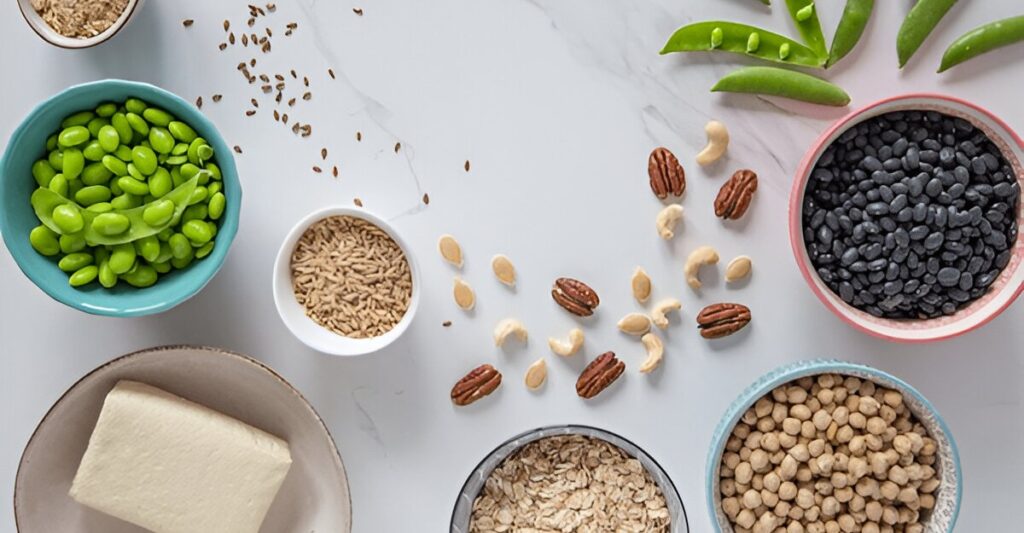Fats have long been misunderstood in the world of nutrition, often labeled as the culprit behind weight gain and health issues. However, not all fats are created equal. Healthy fats are a vital part of a balanced diet, offering numerous benefits for your body and mind. In this article, we’ll explore what healthy fats are, why they’re essential, and how to incorporate them into your meals to support overall wellness.
What Are Healthy Fats?
Fats are one of the three primary macronutrients, alongside carbohydrates and proteins. They provide energy, support cell growth, and help your body absorb essential vitamins. Healthy fats, specifically, refer to unsaturated fats—monounsaturated and polyunsaturated fats—that promote health when consumed in moderation. These fats are found in foods like avocados, nuts, seeds, olive oil, and fatty fish.
Unlike unhealthy fats, such as trans fats and excessive saturated fats, healthy fats have a positive impact on cholesterol levels, heart health, and inflammation. Understanding what healthy fats are is the first step to making informed dietary choices.
The Role of Healthy Fats in Your Body
Healthy fats play a critical role in maintaining optimal health. Far from being something to avoid, they provide a range of benefits that make them indispensable. Let’s dive into why you need healthy fats in your diet.
1. Supporting Heart Health
One of the most significant benefits of healthy fats is their ability to promote cardiovascular health. Monounsaturated and polyunsaturated fats help reduce bad cholesterol (LDL) levels while increasing good cholesterol (HDL). This balance lowers the risk of heart disease and stroke. Foods rich in omega-3 fatty acids, a type of polyunsaturated fat found in salmon, mackerel, and walnuts, are particularly heart-friendly, as they reduce inflammation and improve blood vessel function.
2. Fueling Brain Function
Your brain is composed of nearly 60% fat, and healthy fats are essential for its proper functioning. Omega-3 fatty acids, in particular, support cognitive health, memory, and mood regulation. They play a role in building cell membranes in the brain and reducing inflammation, which may lower the risk of neurodegenerative diseases. Including healthy fats in your diet can help you stay sharp and focused.
3. Aiding Nutrient Absorption
Healthy fats are crucial for absorbing fat-soluble vitamins, such as vitamins A, D, E, and K. These vitamins support everything from immune function to bone health. For example, drizzling olive oil over a salad not only enhances flavor but also helps your body absorb the nutrients from the vegetables more effectively. Without healthy fats, your body may struggle to utilize these essential vitamins.
4. Promoting Weight Management
Contrary to the myth that fats lead to weight gain, healthy fats can actually support weight management. Foods rich in healthy fats, like avocados and nuts, are nutrient-dense and satisfying, helping you feel full for longer. This reduces the likelihood of overeating or reaching for unhealthy snacks. By incorporating healthy fats into your meals, you can maintain a balanced diet without feeling deprived.
5. Balancing Hormones
Fats are essential for hormone production and regulation. Healthy fats provide the building blocks for hormones that control metabolism, stress response, and reproductive health. A diet lacking in healthy fats may disrupt hormone balance, leading to issues like fatigue or irregular cycles. Including sources of healthy fats ensures your body has what it needs to function harmoniously.
Types of Healthy Fats
To fully understand what healthy fats are, it’s important to distinguish between the different types and their sources.
- Monounsaturated Fats: Found in olive oil, avocados, almonds, and peanut butter, these fats are known for their heart-healthy properties. They help stabilize blood sugar and reduce inflammation.
- Polyunsaturated Fats: These include omega-3 and omega-6 fatty acids, found in fatty fish (salmon, sardines), walnuts, flaxseeds, and sunflower oil. Omega-3s, in particular, are anti-inflammatory and vital for brain and heart health.
- Saturated Fats (in Moderation): While saturated fats, found in butter, coconut oil, and red meat, are less “healthy” than unsaturated fats, they can be part of a balanced diet in small amounts. The key is moderation to avoid raising LDL cholesterol levels.
- Trans Fats (Avoid): These unhealthy fats, found in processed foods like margarine and fried items, should be avoided as they increase bad cholesterol and inflammation.
For optimal health, prioritize monounsaturated and polyunsaturated fats while limiting trans fats and keeping saturated fats in check.
How to Incorporate Healthy Fats Into Your Diet
Now that you know what healthy fats are and why they’re essential, here are practical ways to include them in your daily meals:
- Cook with Healthy Oils: Use extra virgin olive oil for cooking or as a salad dressing. Avocado oil is another great option for high-heat cooking.
- Snack Smart: Swap chips for a handful of nuts like almonds, walnuts, or pistachios. Pair them with fruit for a balanced snack.
- Add Fatty Fish: Include omega-3-rich fish like salmon or mackerel in your meals at least twice a week. Try grilled salmon with a side of veggies for a nutrient-packed dinner.
- Incorporate Avocados: Add avocado slices to sandwiches, salads, or smoothies for a creamy, nutrient-dense boost.
- Use Seeds: Sprinkle chia seeds, flaxseeds, or hemp seeds on yogurt, oatmeal, or smoothies for a dose of healthy fats and fiber.
- Balance Your Plate: Combine healthy fats with lean proteins and complex carbs. For example, pair grilled chicken with quinoa and a drizzle of olive oil.
Common Myths About Fats
Despite their importance, healthy fats are often surrounded by misconceptions. Let’s debunk a few common myths:
- Myth 1: All Fats Are Bad for You
Not true! Healthy fats are essential for heart health, brain function, and nutrient absorption. The key is choosing the right types. - Myth 2: Eating Fat Makes You Fat
Weight gain comes from consuming too many calories, not from healthy fats alone. In fact, healthy fats can help you feel full and support weight management. - Myth 3: Low-Fat Diets Are Healthier
Low-fat diets often replace fats with refined carbs or sugars, which can harm health. A balanced diet with healthy fats is more sustainable and beneficial.
Conclusion
Healthy fats are far more than just a source of calories—they’re a cornerstone of a vibrant, healthy life. From supporting heart and brain health to aiding nutrient absorption and hormone balance, the benefits of healthy fats are undeniable. By understanding what healthy fats are and incorporating them into your diet through whole, nutrient-rich foods, you can fuel your body and feel your best. So, ditch the fear of fats and embrace their role in your wellness journey. Start adding avocados, nuts, olive oil, and fatty fish to your meals today for a happier, healthier you.


